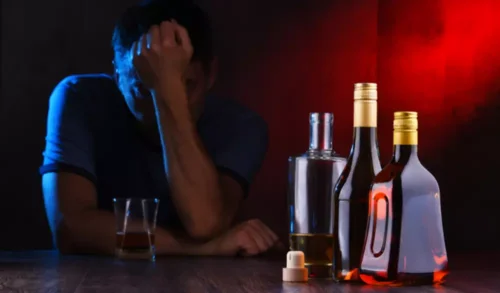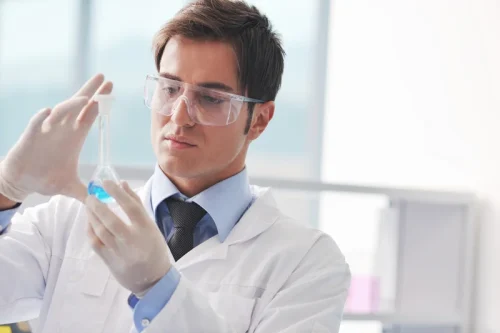In the United States alone, an estimated 17.3 million adults have had at least one major depressive episode. Previous trauma is also a risk factor for alcohol misuse and depression. Children who have major depression as a child may drink earlier in life, according to one study. alcohol and depression Major depression and alcohol use disorder are also co-dependent in women, research suggests. Women with depression are also more likely to engage in binge drinking. Many people wonder if depression can be prevented and how they may be able to lower their risk of depression.
If your loved one needs help
- Treating one of these conditions may improve symptoms for both.
- Alcohol deaths have steadily climbed over the past decade, a trend that accelerated during the pandemic (Figure 1).
- A statistical technique such as MSM is only as good as the data available to it, and Visontay et al. are circumspect in acknowledging the limitations, such as unmeasured confounders.
- It often feels very tempting (and easy) to keep drinking until you feel better, especially when you have less access than usual to more helpful coping methods.
The major problem encountered in these studies involved the use of research methods that failed to address several important issues that might have explained the observed relationships (Allan 1995; Schuckit and Hesselbrock 1994). Specifically, some studies focused on drinking patterns rather than on alcohol dependence or described mood/anxiety symptoms rather than true psychiatric disorders. The distinction is important, because symptoms might be only temporary, whereas true psychiatric disorders are likely to require long-term and more intensive treatments, including psychotherapy and medication. Thus, few of the investigations offered assurance that an alcoholic or alcoholic’s relative actually had a long-term psychiatric syndrome rather than a temporary alcohol-induced condition. These disorders are characterized by disrupted mood (e.g., low, numb, or irritable), along with an array of cognitive (e.g., feelings of worthlessness and difficulty concentrating) and physical (e.g., fatigue and lack of energy) symptoms. However, treating most alcoholics’ depressive symptoms might not require the use of antidepressant medications.
Why do I feel lonely after quitting drinking?
Also, some community mental health centers may offer treatment based on a person’s ability to pay. Tricyclic antidepressants (TCAs) are older medications, seldom used today as initial treatment for depression. They are sometimes used when other antidepressants have not worked.
Depression After Drinking
A recent review revealed similar results from other studies (Schuckit and Hesselbrock 1994). For example, a 10-year followup of young men and women who originally had been studied during their mid-teens by Ensminger and colleagues1 showed no close association between preexisting anxiety symptoms and AOD-use patterns in either sex. Similarly, in a study by Kammeier and colleagues,1 there was little evidence that preexisting psychiatric symptoms measured by a standard personality test predicted later alcoholism. Also, an 18-year followup of 80 children who had experienced severe depressive episodes earlier in life revealed no evidence of an increased risk for alcoholism during the followup period (Harrington et al. 1990). Finally, Schuckit’s research group followed 239 alcoholic men 1 year after they received alcoholism treatment, and the data revealed no significantly increased rates of major depressive or anxiety disorders (Schuckit and Hesselbrock 1994).
Treatment options

No matter your drink of choice, alcohol can easily be abused and often is, especially when it’s used to self-medicate. Pouring yourself a glass of wine or cracking a beer at the end of a long day may temporarily relieve feelings of depression, because alcohol acts as a sedative, but it will exacerbate those feelings and actually intensify them. Over time, your brain’s reward pathway builds tolerance and requires more and more dopamine (via alcohol) to feel pleasure. This can lead to addiction and feelings of depression in the absence of the rewarding substance.
Psychosocial treatments and mutual help
Treatment, particularly a combination of psychotherapy and medications, has been shown to be effective for older adults. However, not all medications or therapies will be right for everyone. Treatment choices differ for each person, and sometimes multiple treatments must be tried in order to find one that works. It is important to tell your doctor if your current treatment plan isn’t working and to keep trying to find something that does. It’s important to seek treatment as soon as you begin noticing signs.
How alcohol can affect your mood

Adults who met criteria for alcohol use disorders also had a higher risk for depression. Whether depression is a stand-alone diagnosis or caused by drinking, alcohol often worsens symptoms. However, depression symptoms can improve after abstaining from alcohol for about 3 to 4 weeks. And, having more severe depression doesn’t necessarily mean you’ll have a more challenging time recovering from AUD.
Depression can look different depending on a person’s cultural background
- Go to the emergency room for signs of alcohol overdose, such as loss of consciousness, serious confusion, or problems breathing.
- Norepinephrine-dopamine reuptake inhibitors (NDRIs) increase dopamine and norepinephrine.
- If the sun is out, that’s even better — sunshine can trigger the release of serotonin, which can help relieve depression.
- And because alcohol drains the brain of both dopamine and gamma-aminobutyric acid (our “safety” neurotransmitter), we’re left with “little of our own, natural chemistry to create senses of pleasure or hopefulness,” Goodwin says.
- Also called major depressive disorder or clinical depression, it affects how you feel, think and behave and can lead to a variety of emotional and physical problems.
Helping A Family Member Or Friend
